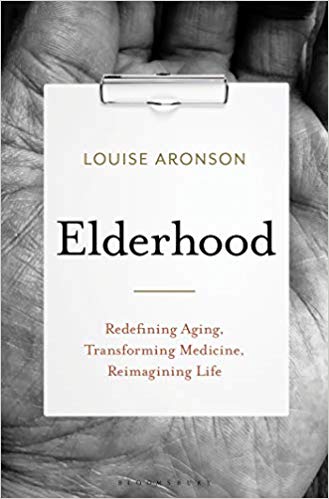“In the latter years there are possibilities for joy, transcendence, and meaning, but also for just the opposite. Aronson writes like a memoirist while giving us scientific insight, philosophical wisdom, and wise counsel for a journey and destination we all share. Elderhood is a lovely and thoughtful exploration of this voyage.”–Abraham Verghese
To reserve your seat please purchase a copy of Elderhood by speaking to a bookseller or ordering through our website.
For more than 5,000 years, “old” has been defined as beginning between the ages of 60 and 70. That means most people alive today will spend more years in elderhood than in childhood, and many will be elders for 40 years or more. Yet at the very moment that humans are living longer than ever before, we’ve made old age into a disease, a condition to be dreaded, denigrated, neglected, and denied.
Reminiscent of Oliver Sacks, noted Harvard-trained geriatrician Louise Aronson uses stories from her quarter century of caring for patients, and draws from history, science, literature, popular culture, and her own life to weave a vision of old age that’s neither nightmare nor utopian fantasy–a vision full of joy, wonder, frustration, outrage, and hope about aging, medicine, and humanity itself.
Elderhood is for anyone who is, in the author’s own words, “an aging, i.e., still-breathing human being.”
Louise Aronson, MD, is the author of the story collection A History of the Present Illness and a geriatrician, educator, and professor of medicine at UCSF, where she directs UCSF Medical Humanities. A graduate of Harvard Medical School and the MFA Program for Writers at Warren Wilson College, Dr. Aronson has received numerous awards for her medical work, teaching, educational research, and writing. The recipient of a MacDowell fellowship and four Pushcart nominations, her articles and stories have appeared in many publications, including The New York Times, New England Journal of Medicine, Lancet, and Bellevue Literary Review.


